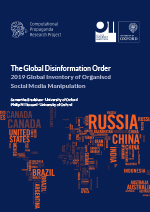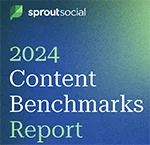 |
Political parties or governments in 70 countries launched disinformation campaigns to shape domestic public attitudes in 2018, according to a report published Sept 26 by Oxford University.
Their cyber-troops rely on "political bots" to amplify hate speech or other forms on manipulated content; engage in illegal harvesting of data or micro-targeting and deploy an array of "trolls" to bully or harass dissidents and journalists online.
Oxford researchers found that authoritarian governments in 26 nations relied on social media as a tool of information control to suppress human rights, discredit political opponents and drown out dissenting opinions.
They also found highly sophisticated foreign influence operations in seven countries: China, India, Iran, Pakistan, Russia, Saudi Arabia and Venezuela
The researchers noted that China, which has traditionally manipulated public opinion at home via domestic platforms like WeChat, Weibo and QQ, has stepped up foreign influence activity.
The Chinese government this year employed global social media to paint Hong Kong's democracy advocates as violent radicals with little support at home.
"The growing sophistication and use of global social networking technologies demonstrates how China is also turning to these technologies as a tool of geopolitical power and influence, reported Oxford.
Facebook is the No. 1 platform for cyber troop activity due to its market size as well as its links to close family members and friends, amount of political news/information and ability to form groups.
Cyber troops also use the video and image-sharing platforms such as Instagram and YouTube, as well as WhatsApp.
Oxford notes that disinformation, distrust, polarization and the decline in democracy existed prior to the development of the Internet and social media.
The researchers believe strong democracy requires access to high-quality information and ability for citizens to come together to debate, discuss, deliberate, empathize and make concessions.
They ask: Are social media platforms really creating a space for public deliberation and democracy, or are they amplifying disinformation, inciting violence and lowering levels of trust in media and democratic institutions?


 What if companies could harness the fury of online outrage into a force for good? This is precisely where companies can start turning the trolls into brand champions.
What if companies could harness the fury of online outrage into a force for good? This is precisely where companies can start turning the trolls into brand champions. Audiences interacted with brand content far more often on Facebook and Instagram in 2023 than they did via X (formerly Twitter), according to a report that tracked engagement trends across different social networks.
Audiences interacted with brand content far more often on Facebook and Instagram in 2023 than they did via X (formerly Twitter), according to a report that tracked engagement trends across different social networks. Can public relations help counteract the dissension fostered by the power of digital platforms to spread hate, fear and confusion?
Can public relations help counteract the dissension fostered by the power of digital platforms to spread hate, fear and confusion? The number of Americans who get their news from TikTok has quadrupled in the last three years, according to a recent Pew Research Center report.
The number of Americans who get their news from TikTok has quadrupled in the last three years, according to a recent Pew Research Center report.


 Have a comment? Send it to
Have a comment? Send it to 
No comments have been submitted for this story yet.